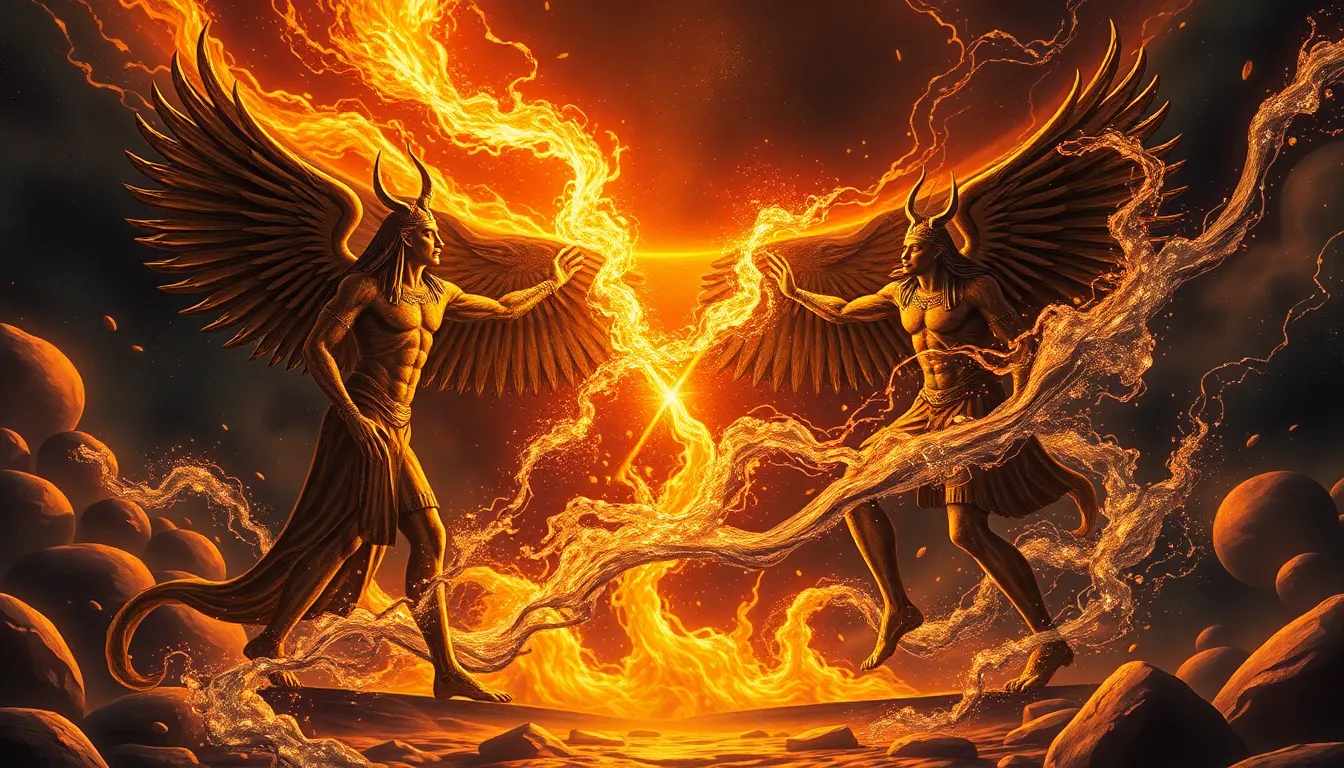The Divine Code of Conduct: Retribution in Egyptian Mythology
I. Introduction
Egyptian mythology is a rich tapestry of beliefs, stories, and practices that shaped the ancient civilization of Egypt. Its significance extends beyond mere tales, offering a window into the values, ethics, and worldview of its people. Central to these beliefs is the concept of retribution—an essential element that governs the moral fabric of the universe as envisioned by the ancient Egyptians.
Retribution in Egyptian mythology encompasses the idea of cosmic justice, where actions have consequences, both in this life and the afterlife. This article aims to explore the divine code of conduct, focusing on how retribution manifests through various deities, myths, and cultural practices in ancient Egypt.
II. The Pantheon of Egyptian Deities
The ancient Egyptians worshipped a vast pantheon of deities, many of whom were intricately linked to the themes of justice and retribution. Key figures include:
- Maat – The goddess of truth, balance, and cosmic order.
- Osiris – The god of the afterlife, resurrection, and regeneration.
- Anubis – The god associated with mummification and the afterlife, overseeing the judgment of souls.
Each of these deities played a crucial role in enforcing cosmic order and ensuring that justice was upheld. The symbolism of divine retribution is woven throughout their narratives, illustrating the moral expectations placed upon humanity.
III. Maat: The Principle of Truth and Justice
Maat is more than just a goddess; she embodies the principle of truth and justice that governs the universe. In Egyptian culture, Maat was essential for maintaining harmony and balance in both the cosmos and society. Her significance is profound:
- Moral Conduct: Maat represented the ideal of ethical behavior, where individuals were expected to live in accordance with truth and justice.
- Judgment of Souls: In the afterlife, Maat played a pivotal role in the judgment process, determining the worthiness of souls based on their earthly deeds.
The presence of Maat in daily life and in the afterlife underscores the importance of morality and ethical conduct in ancient Egyptian society.
IV. The Weighing of the Heart Ceremony
The Weighing of the Heart ceremony is one of the most iconic rituals in Egyptian mythology, symbolizing the judgment of the deceased. During this ceremony, the heart of the deceased was weighed against the feather of Maat:
- Significance: This ceremony represented the ultimate test of a person’s moral character and adherence to Maat’s principles.
- Symbolism: The heart, the seat of emotion and thought, was a reflection of one’s deeds, while the feather represented truth and justice.
The consequences of this judgment were severe: those who were found lacking faced annihilation, while the righteous were rewarded with eternal life in the Field of Reeds.
V. Myths of Retribution and Justice
Numerous myths illustrate the theme of divine retribution in Egyptian mythology, serving as moral lessons for society. Notable examples include:
- The Story of Osiris and Set: This myth narrates the betrayal of Osiris by his brother Set, resulting in Osiris’s death and eventual resurrection. It highlights themes of jealousy, vengeance, and the restoration of order.
- The Eye of Horus: Associated with protection and vengeance, the Eye of Horus symbolizes the retribution faced by those who commit injustices. It reflects the restoration of balance and the triumph of good over evil.
These myths encapsulate societal values and serve as cautionary tales about the consequences of immoral actions.
VI. The Role of the Pharaoh in Enforcing Divine Justice
The Pharaoh, as the earthly embodiment of the divine, played a crucial role in upholding Maat and enforcing justice in society. Key points include:
- Divine Ruler: The Pharaoh was seen as a mediator between the gods and the people, responsible for maintaining cosmic order.
- Historical Examples: Pharaohs like Ramses II exemplified the principles of retribution through their legal reforms and campaigns against injustice.
The actions of the Pharaoh were believed to directly influence the favor of the gods and the stability of the kingdom, reinforcing the interconnectedness of divine justice and earthly governance.
VII. The Legacy of Egyptian Concepts of Retribution
The concepts of retribution and justice in Egyptian mythology have had a lasting impact on later cultures and religions. Points of note include:
- Influence on Later Cultures: The ideas of cosmic justice and moral order found resonance in various religious and philosophical traditions.
- Modern Interpretations: Today, these ancient beliefs continue to inform discussions on ethics, morality, and justice in contemporary society.
The lessons drawn from Egyptian mythology remain relevant, prompting reflection on the nature of justice and the consequences of our actions.
VIII. Conclusion
In conclusion, the significance of retribution in Egyptian mythology is profound and multifaceted. It serves as a reminder of the moral responsibilities individuals hold within society and the cosmic order. The enduring nature of these beliefs highlights the importance of justice and ethical conduct in human affairs.
Exploring Egyptian mythology offers not only a glimpse into an ancient civilization but also valuable insights into the timeless principles of morality and justice that continue to shape our world today.




